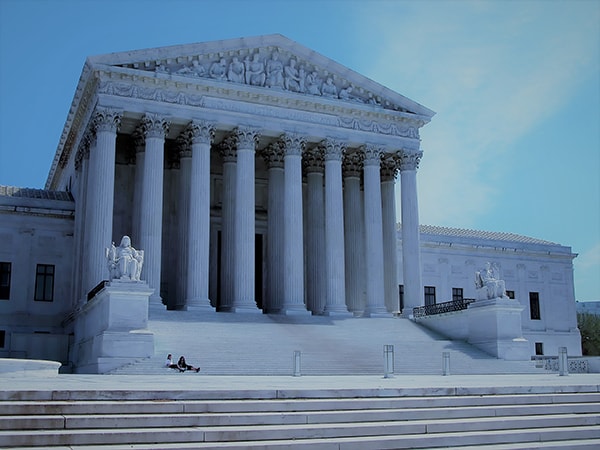Debunking the Process of Federal Appeals: What You Required to Know
Navigating the elaborate world of government allures can commonly look like passing through uncharted waters for those not familiar with the procedure. Comprehending the nuances of appellate court territory, the complexities of submitting a notification of appeal, presenting a compelling brief, and making an influential dental argument are essential parts that can substantially impact the end result of a situation. By unwinding the layers of intricacy bordering government allures, people can gain a clearer insight into the mechanisms that regulate this crucial stage of the legal system.
Comprehending Federal Appeals Process
Looking into the intricate world of the government allures procedure introduces a organized and methodical journey via the judicial system. Federal allures work as a critical device for examining decisions made by lower courts. Understanding this procedure is essential for anyone included in lawful proceedings at the federal degree.
The process typically starts with an event disappointed with a lower court's ruling submitting a notice of appeal. This causes an evaluation by a higher court, where a panel of courts evaluates the lawful disagreements presented by both events. Briefs detailing the legal thinking behind each party's placement are submitted, and dental disagreements might be heard to clear up complex concerns.
The appellate court's decision is based on a comprehensive evaluation of the lower court's proceedings and the debates offered. As soon as the appellate court reaches a decision, it can affirm, turn around, remand, or change the lower court's ruling, providing quality and finality to the lawful conflict.
Appellate Court Jurisdiction Discussed
As we progress from understanding the federal allures procedure to exploring the details of appellate court jurisdiction, a fundamental aspect emerges relating to the authority and limits of these greater courts in the lawful landscape. Appellate court jurisdiction describes the range of cases that a particular appellate court has the power to review and decide upon. Unlike trial courts that listen to situations for the first time, appellate courts are restricted to examining decisions made by reduced courts. These decisions can consist of judgments from both state and federal courts.
Appellate courts have territory over specific sorts of cases, normally those involving legal mistakes, procedural problems, or inquiries of law rather than valid disputes. The jurisdiction of appellate courts is generally detailed in laws and laws that regulate the court system. Recognizing appellate court jurisdiction is important for events involved in the appeals procedure as it establishes whether a case is eligible for evaluation and the level to which the appellate court can interfere in the lower court's decision.
Filing a Notification of Allure
The first action in commencing the federal charms procedure entails submitting a Notification of Appeal with the suitable appellate court. This important record officially alerts the court and the various other events associated with the case that the appealing party intends to seek an evaluation of the lower court's decision. Filing a Notice of Charm is a stringent procedural demand that sets the appellate process moving.
When preparing the Notice of Charm, it is vital to make certain conformity with the certain regulations and standards of the pertinent appellate court. federal crime attorney. The file should usually include information such as the case name, the reduced court's name, the day of the judgment being appealed, and a concise declaration suggesting the grounds for the allure

Briefing and Dental Argument
In the appellate process, offering written briefs and participating in dental disagreements play crucial roles in promoting for the appealing party's setting prior to the appellate court. Briefs are comprehensive legal papers that outline the celebrations' debates, legal authorities, and analysis sustaining their placements. These written submissions give the court with a comprehensive understanding of the truths of the instance, the relevant legislation, and why the appealing event thinks the lower court's decision must be rescinded.
Adhering to the submission and evaluation of the briefs, dental debates offer the parties a chance to additional clarify their placements, resolve any concerns the appellate courts might have, and emphasize bottom lines from their composed briefs. Oral disagreements are a possibility for the lawyers to persuade the judges through verbal advocacy and actions to questions from the bench.
Both the created briefs and dental debates are crucial components of the appellate process, allowing celebrations to provide their situation completely and compellingly prior to the appellate court. - federal appeal lawyers
Getting the Appellate Court Choice
The appellate court's choice is generally provided in a written style and lays out the court's conclusions on the lawful concerns provided, the thinking behind their decision, and the judgment made. The time structure for getting the appellate court's choice can differ, but courts aim to give timely resolutions. Whether the appellate court verifies, turns around, or remands the reduced court's decision, understanding the ramifications of the judgment is crucial for all celebrations entailed in the appellate procedure.
Conclusion
Recognizing the appellate court territory, submitting a notification of allure, preparing briefs, and offering dental disagreements are all crucial elements of this process. Ultimately, receiving the appellate court choice can provide quality and resolution to legal disagreements.
As we advance from comprehending the government charms process to studying the details of appellate court territory, a fundamental aspect comes to light regarding the authority and limits of these greater courts in the lawful landscape. Appellate court browse around this site jurisdiction refers to the scope of instances that a certain appellate court has the power to examine and choose upon. Unlike test courts that hear cases for the initial time, appellate courts are restricted to evaluating decisions made by reduced courts. Comprehending appellate court jurisdiction is critical for events included in the appeals procedure as it identifies whether an instance is qualified for review and the level to which the appellate court can intervene in the reduced court's choice.

Comments on “Leading Federal Appeal Attorneys: Your Companions in Browsing the Appeals Process”